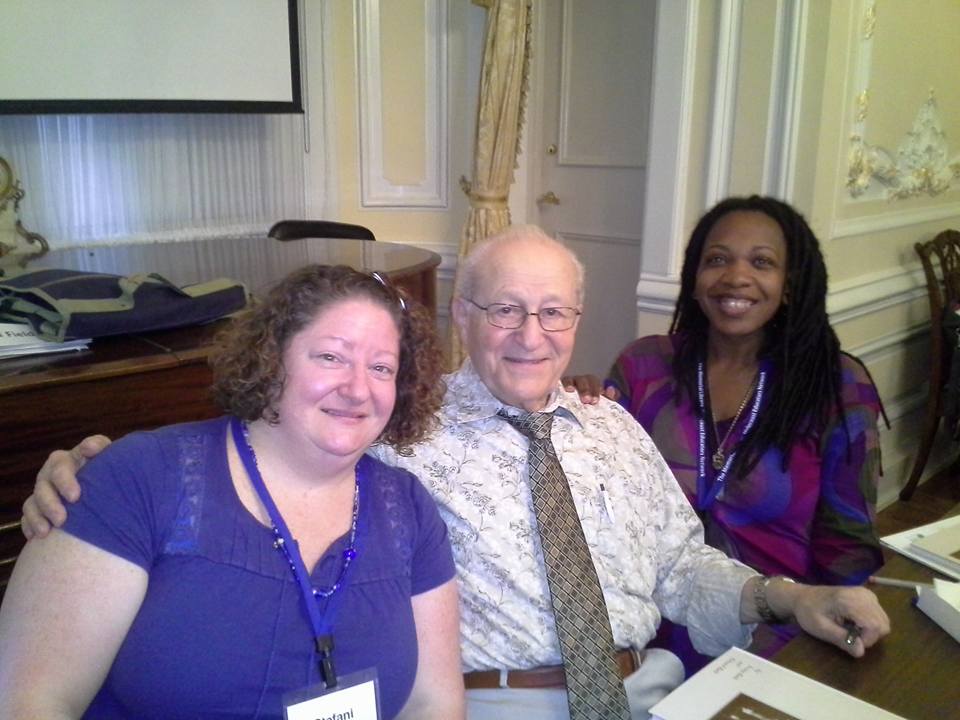For Stefani Sobol-Pastor, being an educator runs in the family—her four siblings and mother all work in the field. So it’s no surprise that around the age of twenty, the path to teaching, as she puts it, “found her.” Today, she uses her degrees in Theology and Philosophy to teach 11th and 12th graders at Seton-LaSalle High School in Pittsburgh, PA.
“We don’t always recognize what our calling is at first,” she explains when discussing how she began her now twenty-year teaching career. The same was true of her interest in Holocaust education. She first discovered her interest in the subject around 2010, when she attended a course being offered by the Anti-Defamation League of Philadelphia called Bearing Witness.
“I didn’t think at the time about what sort of an impact it would have on me,” Stefani remembers. “But I come from a mixed family background and it wound up speaking to me deeply.”
Stefani’s family immigrated to the United States from Russia by way of Ireland. They intermarried along the way, and today her family members are both Catholic and Jewish. The desire to build a bridge between these two religions is what sparked her interest in Holocaust education.
Since then, Stefani has not only travelled with the Anti-Defamation League to Israel on the Bearing Witness advanced program, but has studied at Yad Vashem, began teaching a Holocaust studies course at her school, and is currently pursuing a PhD in Holocaust Education at Gratz College. Through her thesis, she hopes to develop a more cohesive national curriculum which connects Holocaust studies to art in the classroom.
She discovered TOLI when David Field, Chairman of the Board of Directors, came to speak at the Anti-Defamation League just before she left for Israel. Hoping to further pursue her interest in Holocaust studies, Stefani attended the TOLI summer seminar in New York City in 2015. At the seminar, Stefani learned the importance of writing as a vehicle to teach.
“I am very pleased to have been a part of it,” Stefani notes of her time with TOLI, specifically in regard to the amount of writing she was asked to do as part of the seminar. “I think that it has made me both a stronger Holocaust teacher and a stronger advocate.”
One of the takeaways from her time with TOLI is that she recognizes the need for more writing across curriculum.
“I think we as educators get so caught up in our own programs and the rigors of our particular subject areas that we forget the craft of written communication,” Stefani notes.
As a part of this newfound love of the written word, Stefani is assigning a new project for her students this year. Each will read a memoir, one of the options being Olga Lengyel’s book, Five Chimneys. Students will create five pieces of art based on the memoir, which they will then present and critically discuss with the class. She believes that this will instill students with the ability to not only discuss their own work, but to appreciate the significance of what inspired it.
This ambitious project is just one of the ways Stefani is teaching her students to utilize writing as a means of communication, which she is hoping they will learn to do on a daily basis as a way to connect with one another.
“Our humanity begins with the ability to actively communicate through shared language,” Stefani reflects. “That’s where our commonality actually lies.”
